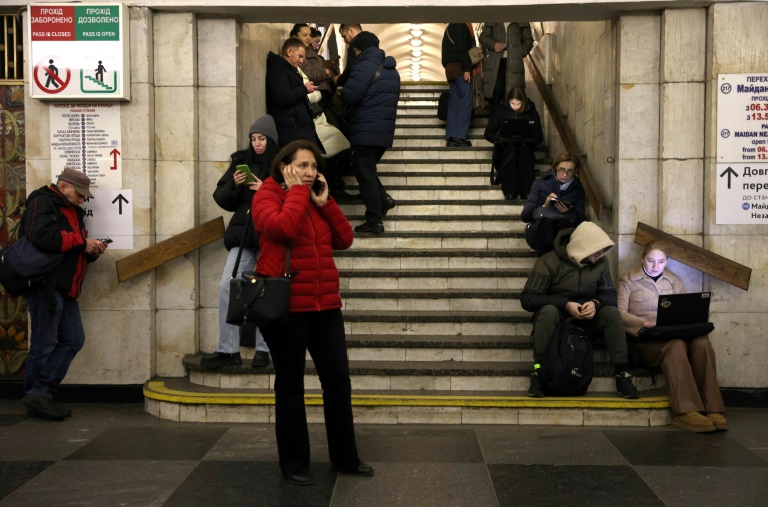In a significant escalation of the ongoing conflict, Russia has launched a massive missile and drone attack on Ukraine’s energy sector, plunging the nation deeper into crisis as winter sets in. President Zelensky appeals for international air-defense support amid growing regional tensions.
Russia Strikes Ukraine Energy Sites In ‘Massive’ Barrage

Key Takeaways:
- Russia Launches Massive Attack on Ukraine’s Energy Sector
- Ukrainian Forces Intercept Multiple Missiles and Drones
- President Zelensky Urges International Air-Defense Support
- Poland Scrambles Jets Amid Rising Regional Tensions
- Russian Forces Claim Capture of Strategic Village
Russia Unleashes Massive Assault Amid Winter Chill
Russia has intensified its offensive against Ukraine by launching dozens of missiles and drones targeting the nation’s energy infrastructure. The assault, described by Ukrainian officials as a “massive Russian attack,” comes as winter grips the region, exacerbating the challenges faced by civilians.
“It is the middle of winter, and the target for the Russians remains the same: our energy sector,” President Volodymyr Zelensky stated on social media.
Missile and Drone Barrage Details
According to the Ukrainian air force, Russia deployed 43 cruise and ballistic missiles alongside 74 attack drones in the overnight offensive. Ukrainian defenses worked tirelessly, successfully shooting down 30 missiles and 47 drones.
Despite the onslaught, Zelensky reported that authorities managed to maintain the “operation of our energy system,” showcasing the resilience and preparedness of Ukrainian infrastructure and personnel.
Impact on Critical Infrastructure
The attacks primarily targeted sites in western Ukraine. In the Lviv region, two critical infrastructure facilities were hit in the Drogobych and Stryi districts.
“Fortunately, there were no casualties, but there was damage,” Lviv Governor Maksym Kozytsky reported.
Similarly, Svitlana Onyshchuk, regional governor of the Ivano-Frankivsk region, confirmed that while critical facilities were targeted, air-defense systems engaged the incoming threats effectively, and the situation remained under control.
Ukraine’s Call for International Support
In response to the intensified attacks, President Zelensky has urged allies to expedite the supply of promised air-defense systems to bolster Ukraine’s defensive capabilities.
The urgency of this request is underscored by an upcoming meeting in Warsaw between Zelensky and Polish Prime Minister Donald Tusk. A senior Ukrainian official indicated that the leaders would discuss defense and expectations for the upcoming U.S. presidency of Donald Trump.
Regional Security Concerns
The offensive prompted immediate reactions from neighboring countries. Poland scrambled fighter jets to secure its airspace during the Russian barrage.
The Polish Operational Command announced, “There had been no violations of our airspace over the three-hour mission,” highlighting heightened vigilance amid escalating regional tensions.
Russian Military Claims Advances
The Russian defense ministry confirmed the strikes, stating that its forces carried out “high precision” attacks on energy facilities that “support the Ukrainian military-industrial complex.” The ministry asserted that all designated targets were struck.
Additionally, Russian forces claimed the capture of the village of Ukrainka in the industrial region, indicating ongoing ground advancements.
Resilience Amid Escalation
Despite facing one of the largest attacks in recent months, Ukraine’s air defenses and emergency protocols have demonstrated effectiveness. The Ukrainian national grid operator, Ukrenergo, temporarily introduced emergency blackouts in seven regions but managed to lift them after the attack, advising citizens to minimize electricity usage during peak hours.
Looking Ahead
The escalation signifies a critical juncture in the conflict between Russia and Ukraine, with significant implications for regional security and international relations. As Ukraine braces for potential further assaults, the support of international allies and neighboring countries remains pivotal.











